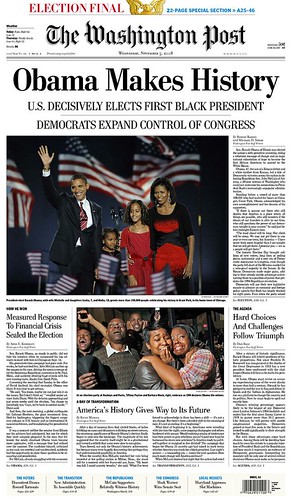At its core, art is a form of communication. It is, in fact, a vehicle for relating
feelings, emotions, realities which
can be expressed in no other way.
Through the arts, human beings have the ability to depict ideas for
which there is no casual outlet in our day-to-day, mundane lives. Ideas so lofty, so beyond the ordinary, that the
only way to express them is through music or painting, sculpture or dance, song
or drama… Whatever the medium, it can be
used to expand the definitions of who we are and what we are capable of…to blur
the boundary between the human and the divine.
Think of what the human race could have become, if only we
could channel all that artistic energy into expressing and enhancing the best
and brightest aspects of the human experience. But we don’t seem to have the
capacity to allow any creative endeavor to remain beautiful or transcendent, or
even positive. We cannot refrain from
using our right brains to explore the depths of negativity…to express the
darker side of human nature. I suppose it would be illogical to expect
otherwise. That dark energy needs to be
explored…if only to determine how best to keep it in check.
I suspect there has been a tug-of-war between dark energy
and light since humans first gained the capacity to communicate concepts
greater than “Eat, sleep, live, die.” Time and again, great civilizations have
risen and flourished, bathed in the light of knowledge and progress, only to
crumble and die in the darkness of violence and ignorance. We can't seem to help turning toward the darkness
when the light leaves us nowhere to hide.
In European history, for example, the
enlightenment of the Greek and Roman civilizations
descended into the darkness of the Middle Ages.
The darkness was beaten back again during the Renaissance, which
propelled us into what is called the "modern era." Today, it seems the light of the Modern Era
is fading once again into the darkness of ignorance and violence--a process
which, it seems, it not outside our control. It is
not as if humankind is unaware of the struggle, or of the consequences of
allowing the darkness to flourish. But
we seem compelled to embrace the darkness anyway.
Or perhaps we invite it to come close so that we can prove
we have conquered it. But we haven't,
have we? History proves time and again that we are unable to learn and retain the lessons it should be teaching us.
Here we are, in the 21st century. The future to which, as a child of the middle
of the last century, I looked forward as an era of brotherhood and
understanding, a time where concern for the environment and our fellow humans
would inform all our policies and we would be poised on the edge of extending
our grasp to the stars, and beyond.
Truly, there was a time at which our choices as a species seemed to be
between that and self-annihilation. And
for a hot minute, it looked as if we had dodged the bullet and were headed
toward Utopia. But only for a minute…
Because though we have managed not to push the fatal button
that would have erased ourselves from the universe in a final flash, we have
nevertheless made a u-turn on the road to Utopia. World War II and the events leading up to it
had showcased some of the most heinous tendencies of human nature; that, and
the fiery and decisive end to that global conflict had scared the bejeezus out
of us. We knew what we were capable of
as a species, up to and including that we now had the ability to make ourselves
extinct. So we slid into the second half
of that decade a little wiser, a little kinder, a little desperate to identify
and cling to the finer, nobler aspects of human character. Perhaps we wanted to be reminded of what made
us worthy to be saved from the fate we held in our own hands.
And this was reflected in our art—particularly the two most
recent additions to the portfolio of artistic media: movies and
television. The 40’s and 50’s were the
middle of the “golden age of Hollywood,” where the studios and the censors
collaborated to release a steady stream of good old fashioned entertainment,
creating a world where there was no cussing, little sex, and violence limited
to fist fights and bloodless handgun exchanges.
Television followed closely in the footsteps of its older cousin,
bringing us heart-warming situation comedies, westerns, variety shows,
cartoons, and some attempts at classical drama or science fiction—all under the
watchful eye of those same censors dedicated to pumping into our living rooms
nothing that would make Mom and Dad blush or Junior pipe up with a
four-letter-word during dinner with Grandma.
But of course, we couldn’t leave it at that, could we? Once we really got a feel for these new artistic
media, we couldn’t limit them to the “fantasies” of morality plays and happy
endings. We decided that we were using
our new media in a lopsidedly positive way…that we could not respect the art
until it was fleshed out with exploration of the dark side of human
nature. Only then would film and video
be venerable as complete art forms, communicating the whole of human
experience.
What we always seem to forget is that the dark side is so
seductive. Perhaps because it is
intrinsically connected to our baser instincts.
The human experience improves when we control our more animalistic tendencies--territorialism,
tribalism, fear of change and fear of "other"--that always seem to
express themselves in violence against our fellow human beings. But we no sooner contrive policies that
employ our tremendous brains to rise above our negative instincts, than we
begin to rebel against them...because being our selfish, violent, xenophobic selves
feels so good. So comfortable.
So what is the harm in crafting a film or a television show
about serial killers, or sexual deviants, or drug addicts or dysfunctional relationships? These are all part of the human experience,
are they not? Do we not want to be honest with ourselves about the modern
human condition? Of course we do. If only we could keep those depictions of the
dark side of human nature from jumping off the screen and becoming templates
for our everyday lives.
Do not delude yourself into thinking this is not exactly
what happens. In some way, the fact that
we see a behavior on the screen translates to our huge, advanced brains as
validation of the behavior. Perhaps we
don't see a movie like Fatal Attraction and decide it's ok to go and immediately
have an affair with somebody you picked up in an elevator, but it puts the idea
out there as a possibility...as something that someone might do. Perhaps you won't
sit through a season of Breaking Bad and decide that the life of a school
teacher turned meth cook looks pretty
damned attractive. You might never have
even considered such behavior...until it was presented to you in
bigger-than-life living color in the comfort of your living room.
See enough depictions of bad behavior and it loses its
abhorrence. It becomes natural and very
nearly acceptable. Just
"naughty," instead of "unthinkable." There's no such thing as, "People don't
do that!" because they ARE doing it--right there on the screen. The door to the dark side has been opened a
crack, and its powerful magnetic force draws us inexorably toward it.
What is the answer?
Is there a way to counteract the intellectual and moral decay we are
pumping into our brains daily through the garbage that any
person/faction/entity is free to release on film, television and the
internet? Censorship? Government control? I wish I knew. And it scares the hell out of me that I
don't.
What I do know is that our visual media have an effect on
us that we do not universally understand.
If research has been done on the issue, the results thereof have hardly
become common knowledge. And I doubt if
they ever could, given that the outlet for the publication of said results is
most likely controlled by those who might be damaged (financially) if the word
got out.
So the next time you indulge in viewing a story onscreen
that plumbs the depths of negative human behavior and are tempted to call it
"art," or allow it to take shelter under the umbrella of "free
speech," consider the fine line
between art/free speech and behavior modification. Intentionally or un-, our behavior is being
shaped by what we see on screens large and small, which seem to be everywhere
you turn, these days. Consider how we
might better use these "artistic" media to improve the human
condition, rather than degrade it.
If you have any ideas, I'd love to hear them...




















No comments:
Post a Comment